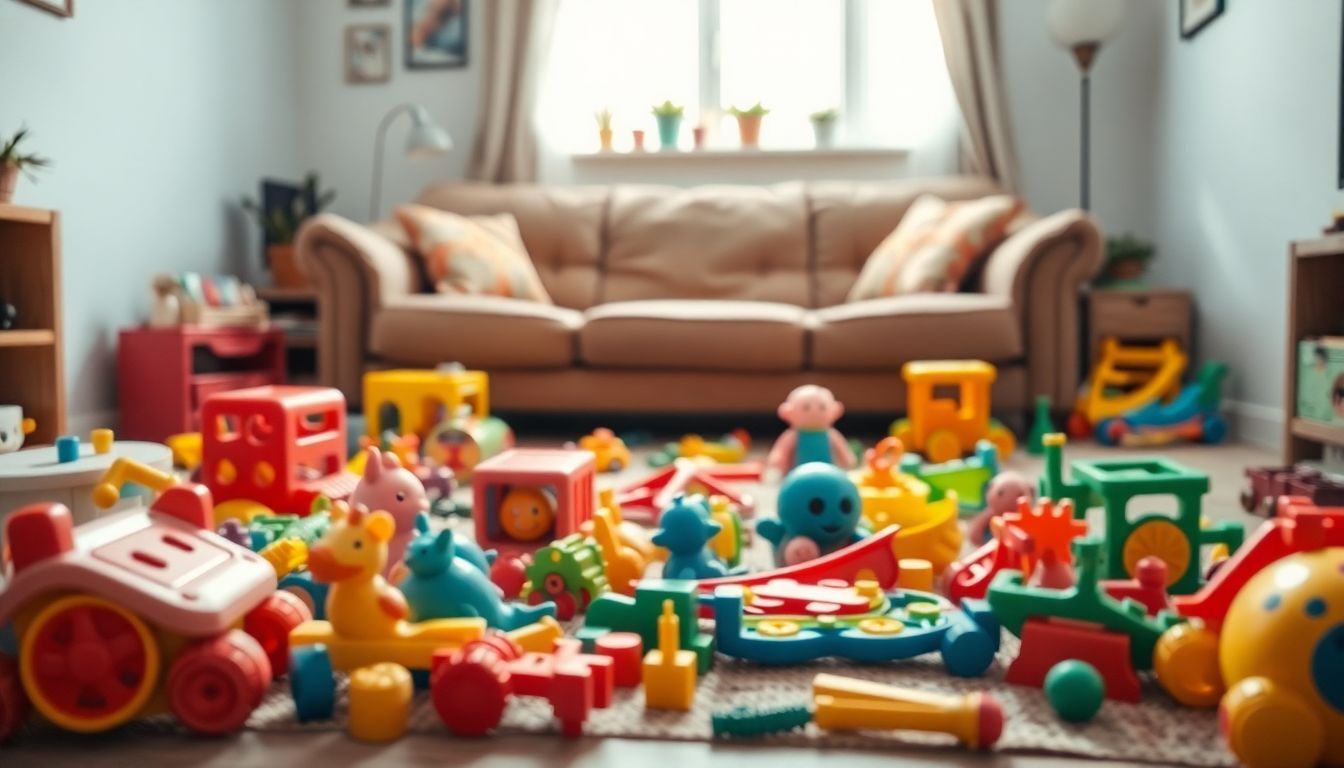Many older adults worry about cognitive decline as they age. Studies show that caring for grandchildren can help improve memory and cognitive skills. This blog will explain how spending time with grandkids benefits your brain and mental health.
Thank you for reading this post, don't forget to subscribe!Keep reading to learn more!
Key Takeaways
- Spending time with grandchildren improves memory, problem-solving, and planning skills. Activities like puzzles, games, reading stories, or helping with homework keep the brain active.
- Grandparent caregiving is linked to reduced risks of cognitive decline, including dementia. Social engagement and mental stimulation boost overall brain health in older adults.
- Tasks such as managing schedules or teaching new skills challenge cognitive abilities. These activities promote healthier aging by delaying age-related mental changes.
- Building strong intergenerational ties reduces stress and loneliness while strengthening emotional bonds. Social connections improve happiness and protect against memory loss.
- Caregiving may cause exhaustion or stress without proper balance and self-care. Taking breaks helps avoid burnout while supporting long-term physical and mental health.
Benefits of Caring for Grandchildren
Spending time with grandchildren can sharpen your mind. It helps you stay mentally active and engaged in daily life.
Stimulates mental activity
Playing with grandchildren can sharpen the mind. Activities like board games, puzzles, and reading stories engage mental flexibility and working memory. Teaching them new skills or helping with homework also challenges cognitive abilities, keeping older adults sharp.
This kind of mental engagement is linked to healthier aging. It may help reduce risks of cognitive decline seen in conditions like dementia or Alzheimer’s disease. Let’s explore how problem-solving and planning come into play next….
Promotes problem-solving and planning
Looking after grandchildren sharpens problem-solving and planning skills. Managing their schedules, meals, and activities improves cognitive functioning. This keeps the brain active and engaged.
Tasks like helping with homework or organizing playdates demand focus and patience.
Such responsibilities benefit older adults by challenging their minds. Planning events or solving daily issues strengthens brain health over time. Studies link these actions to reduced cognitive decline in older age.
Grandparent caregivers often experience improved decision-making abilities through regular mental engagement with their grandkids’ needs.
Reduces cognitive decline associated with aging
Engaging with grandchildren can help slow cognitive aging. Older adults who actively care for them tend to show stronger mental health and better memory. Regular tasks like helping with homework, playing games, or managing schedules keep the brain sharp and active.
Studies link grandchild caregiving to reduced risks of dementia and neurodegenerative disorders. Social interaction during caregiving boosts social ties and supports cognitive functions.
This connection promotes overall brain health while lowering chances of functional limitations over time.
Research on Grandparent-Grandchild Relationships
Studies show that spending time with grandchildren can sharpen the mind. Activities like reading together or solving puzzles encourage thinking and focus.
Study showing improved memory and cognitive skills
Older adults caring for grandchildren show sharper memory and thinking skills. A study found that grandparent caregivers involved in childcare displayed better cognitive functioning compared to those who didn’t.
One reason could be the mental engagement needed during caregiving. Planning meals, solving conflicts, and keeping up with energetic kids stimulate the brain. This helps delay cognitive aging and reduces risks like dementia or memory loss over time.
Grandchild caregiving can boost brain health and slow down cognitive decline.
Activities promoting mental engagement
Playing games like chess or puzzles keeps the brain active. Reading stories to grandchildren can improve focus and memory. These activities are fun but also make the mind work harder.
Teaching new skills, like math or crafts, sharpens thinking abilities. It boosts self-confidence while encouraging problem-solving and planning. Simple tasks, such as helping with homework, engage cognitive functioning regularly.

Importance of social interaction
Sharing activities with grandchildren strengthens social connections. These bonds boost cognitive health for older adults, reducing stress and loneliness. Social engagement keeps the brain active by encouraging conversations, emotional exchanges, and shared experiences.
Research links strong intergenerational ties to better cognitive functioning. Grandparents who interact regularly with grandkids show improved memory and reduced cognitive decline.
Such relationships promote a sense of purpose and belonging while protecting brain health over time.
Psychological Benefits of Maintaining Family Ties
Staying close to family keeps the mind active and improves mental well-being—discover how this can boost your happiness.
Positive impact on cognitive function
Spending time with grandchildren improves brain health. It keeps the mind sharp by promoting activities that challenge thinking and memory. Strong family ties boost cognitive function by providing emotional support and ongoing social engagement.
Studies link these connections to lower rates of cognitive decline in older adults.
Caring for grandkids helps maintain mental status as it involves planning, problem-solving, and learning new things daily. These actions enhance self-efficacy and protect against age-related changes like dementia or memory loss.
Grandparent caregiving also strengthens intergenerational relationships—providing meaningful interactions that help the brain stay active over time.
Next, let’s explore research on how grandparent-grandchild bonds impact cognition further…
Considerations for Caregivers
Caring for grandchildren can bring joy, but it may also lead to stress and fatigue. Finding a balance between your needs and caregiving tasks helps maintain well-being.
Acknowledgment of potential stress and exhaustion
Caring for grandchildren can bring joy, but it may also lead to stress and exhaustion. Long hours or physical exertion might strain older adults. This could impact their health, increasing risks like heart problems or frailty.
Too much caregiving without breaks might cause psychological distress. Studies suggest caregivers are more likely to feel depression symptoms over time. Balancing self-care with family caregiving is vital for staying healthy while maintaining intergenerational ties.
Proper rest helps avoid burnout and supports long-term cognitive health.
Importance of balance and self-care
Balancing grandchild caregiving with personal needs can reduce stress and improve health. Taking breaks helps caregivers avoid burnout. Activities like walking, reading, or yoga can support physical activity and mental well-being.
Self-care also strengthens cognitive functioning. Older adults who practice self-care manage family caregiving better while maintaining social connections. Doing this reduces functional limitations and boosts life satisfaction over time.
Conclusion
Caring for grandchildren can keep your mind sharp and active. It strengthens both brain health and family bonds. Though it may feel tiring at times, the rewards outweigh the challenges.
Staying mentally engaged through caregiving helps reduce cognitive aging. Grandparenting isn’t just about love—it’s also good for your brain!
